Designing for All – Cross Cultural Considerations
Presenter: Geoff Barker, Principal, PM&D Architects
Oral Presentation
Far from limiting Universal Design to the importance of delivering on the crucial needs of people with impaired abilities it is important to recognise that Universal Design means designing for all so that discrimination is, as much as possible, eliminated. So what does such a broad objective mean when factoring in the importance of the needs/position of those from different cultural backgrounds? Cross-cultural project development scenarios of all types [built-environment, interiors, products, events, and special needs], pose additional and potentially different considerations and responses for those external to the cultural group with whom one is working; often adding a level of complexity and need for additional resources, such as interpreters. This becomes even more challenging for a project scenario where the cultural group is not necessarily the “Client” [that is one who is the “Owner/Proponent” or “Developer/Funder” of a project] but who is a direct recipient “End User”.
It is proposed in this paper that the starting point for all UD projects is the same, no matter what the context and/or scenario or whom the client group might be. A “Universal Design Project Development Process” [UDPDP] is outlined with the focus being the comprehensive engagement of the people involved; engagement meaning, taking on people as “Partners in Development not merely Recipients of Development”. At the same time recognising the importance that through this engagement strong relationships are developed enabling those involved to understand the scope of specific cross-cultural UD requirements and how these can/need to be included in the project delivery path, such as in; research, investigations, wider and additional stakeholder involvement, planning, prototype modeling, project delivery and future operations and management. The UDPDP framework presented has been used and refined over time for built-environment projects, but never-the-less is relevant to all projects. A cross-cultural case study demonstrates the application of the framework to a major Housing and Infrastructure project in the Northern Territory, concluding with lessons learned that might inform future considerations across UD generally.
